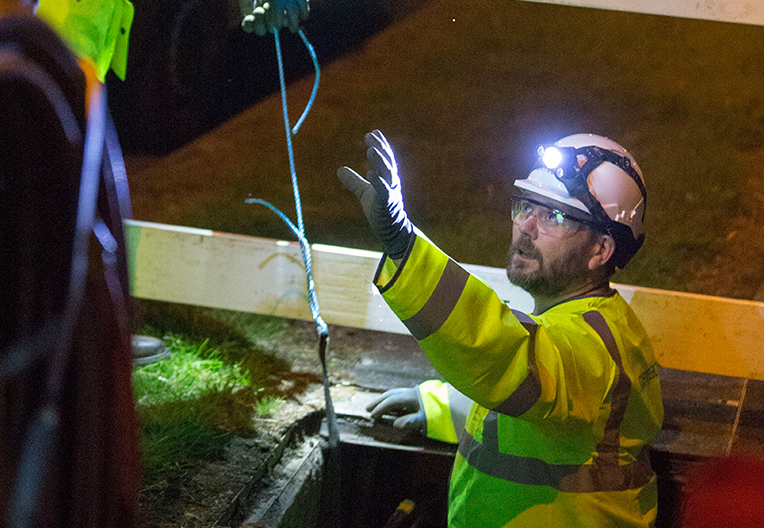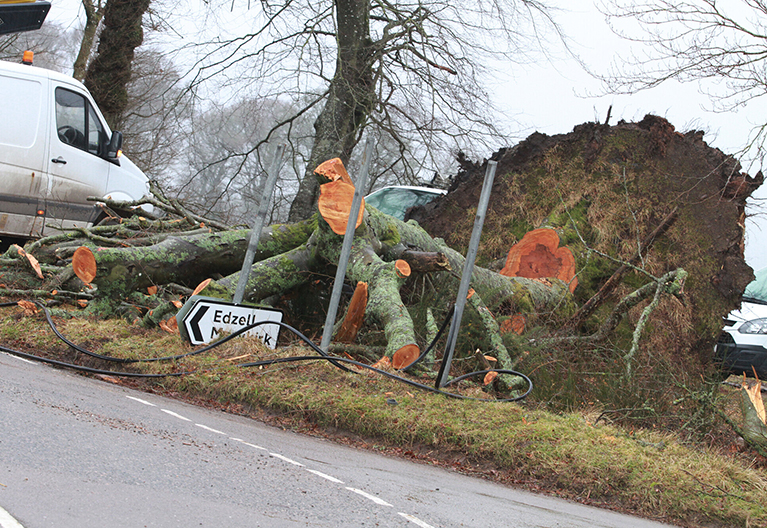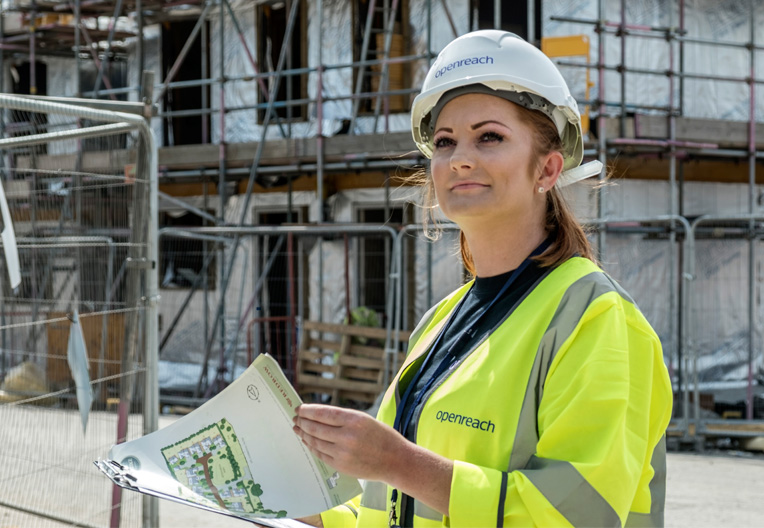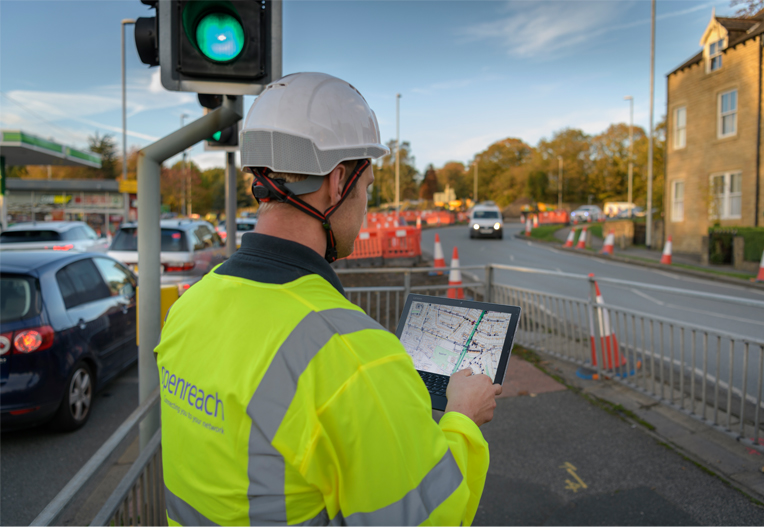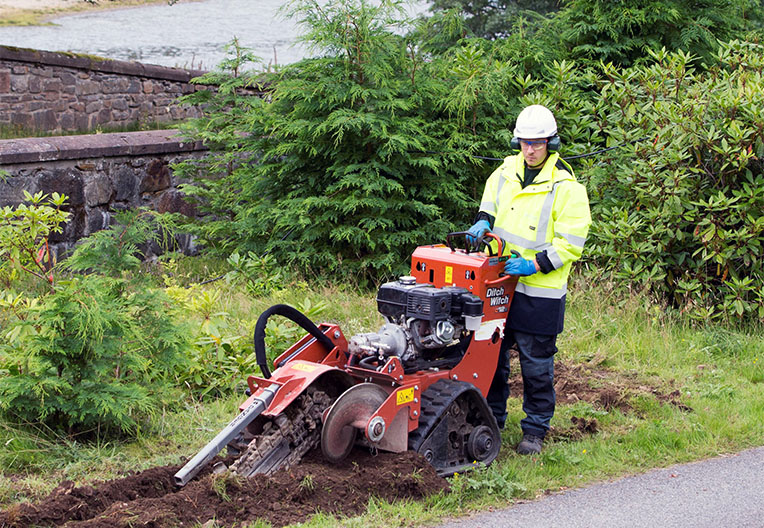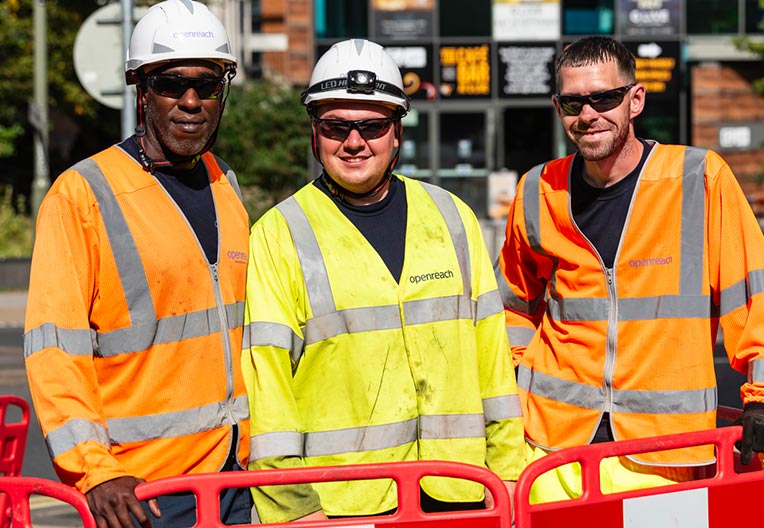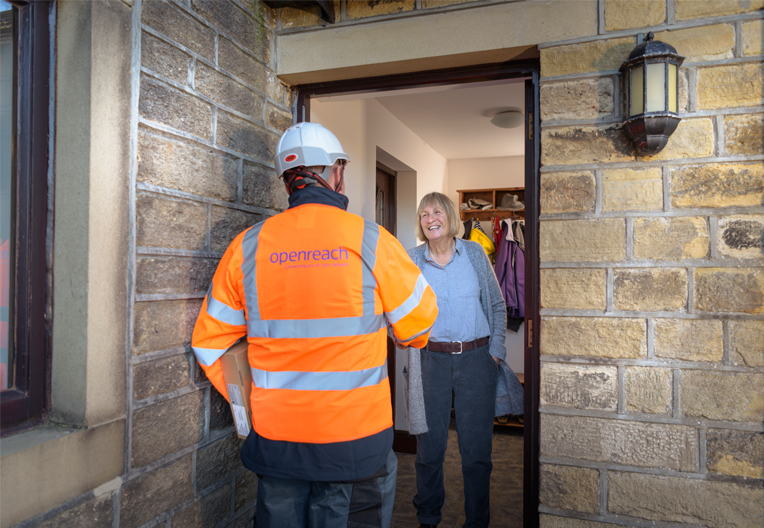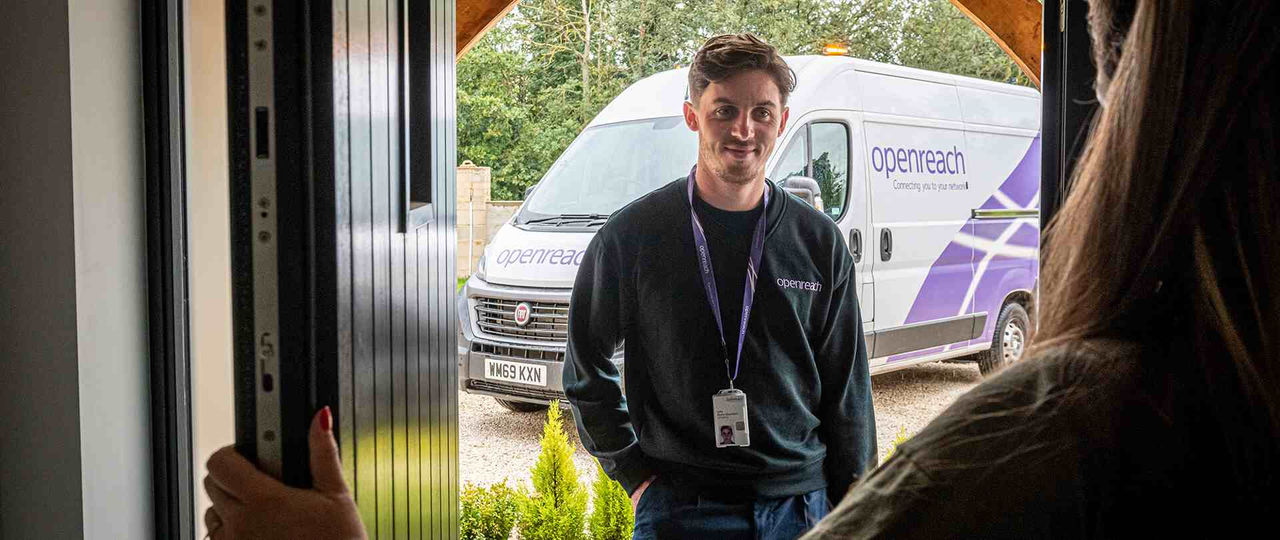
Most common reasons for a delay to a Full Fibre installation
Are you sure it’s Openreach you need?
Let’s direct you to all the service providers on our network
Underground works
The most common delays are when there are problems with running your new fibre cable underground or overhead into your property.
Full Fibre is delivered differently to the part fibre broadband you have today. So, we may need to dig or clear existing underground ducts to run the cable into your property.
Sometimes it’s soft-dig work on what we call “soft” surfaces (non-compacted surfaces), like grass, where engineers will use hand tools to install the necessary ducts. And sometimes it’s hard-dig work which requires specialist civils teams.
Tree cutting
Openreach may need to cut back tress and foliage as these can hinder an engineer’s ability to complete your Full Fibre installation. Foliage too close to overhead lines can also cause disruptions, potentially damaging cables during high winds or storms.
Scaffolding may be required
Openreach may need to use scaffolding when working at heights that cannot be safely reached with ladders, such as on tall buildings or structures. Scaffolding provides a secure and stable platform for engineers to install or repair overhead lines, particularly in areas where lines are attached to high walls or rooftops.
Road closures
Road closures may be necessary to ensure the safety of both the public and engineers while we conduct work in areas affecting roads or footpaths. This could include installing underground cables, working on roadside cabinets, or accessing overhead lines on busy streets.
Gully services
Many manholes or underground chambers can remain unopened for long periods, leading to debris or water to build up that blocks our access to these areas. To complete your Full Fibre installation, we may use methods such as ‘Gully sucking’ to remove water or debris from a box or manhole or ‘Jetting’ to remove water or debris from a duct.
Specialist engineer is required to complete the work
In some cases, completing an installation may require the expertise of a specialist engineer or the use of specialised equipment. This is typically due to unique site conditions or complex network requirements that go beyond standard installations. Specialist engineers are trained to handle these more technical scenarios, ensuring the installation is completed safely and efficiently.
Permissions may be required
We often need permission to work on private land or public spaces. This can take time if approvals are required from local councils or property owners.
In some cases, wayleaves may be required which is a contract between the landowner and Openreach which gives Openreach a right of to install and maintain our network.

